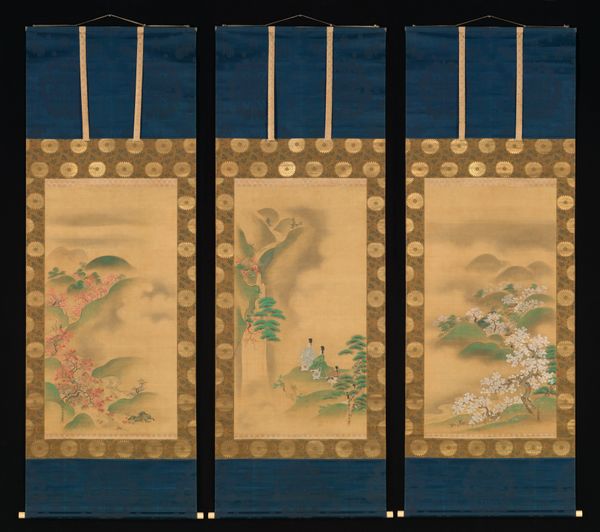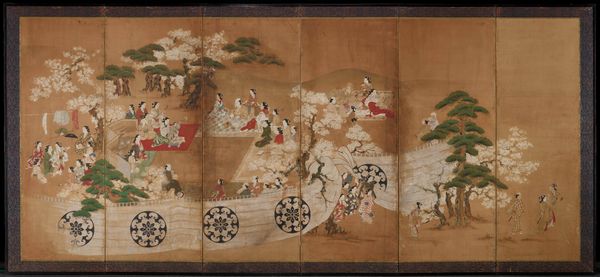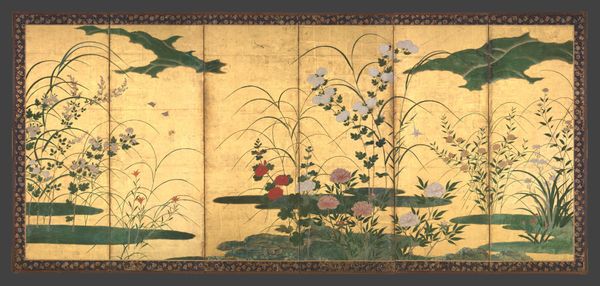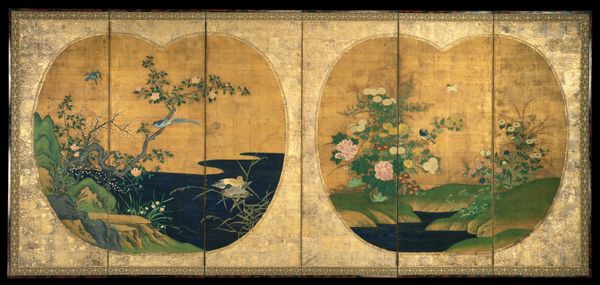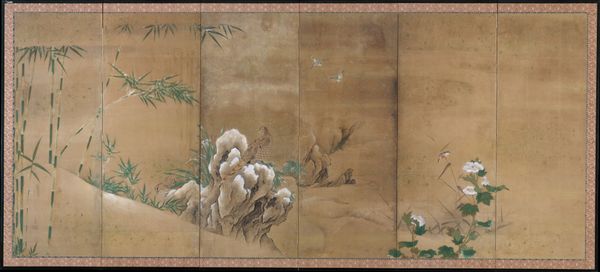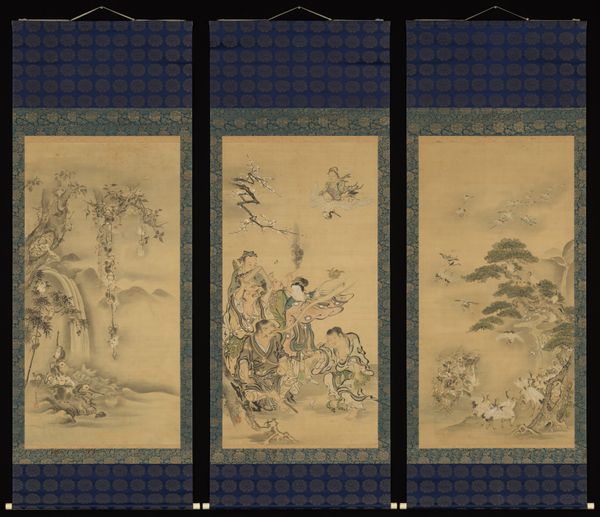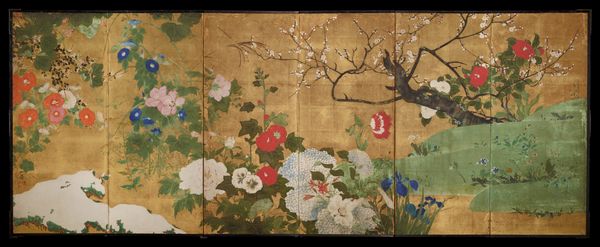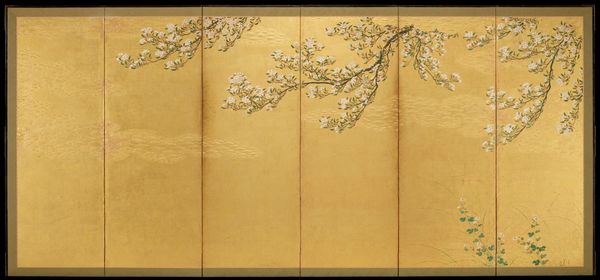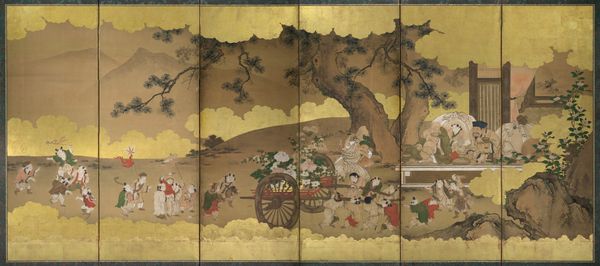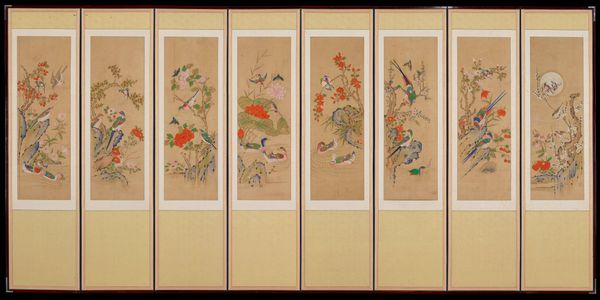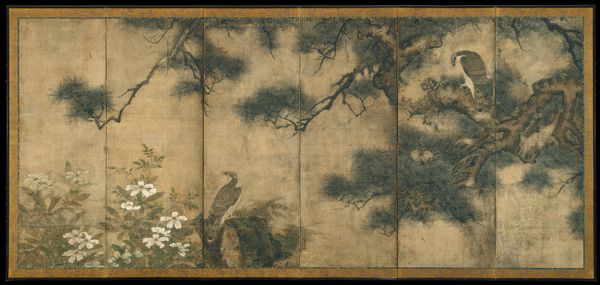
Birds and Flowers of the Twelve Months with Chinese Calligraphy 16th century
0:00
0:00
drawing, tempera, painting, print, paper, watercolor, impasto, ink, mural
#
drawing
#
organic
#
water colours
#
tempera
#
painting
# print
#
asian-art
#
landscape
#
bird
#
flower
#
figuration
#
paper
#
watercolor
#
impasto
#
ink
#
orientalism
#
mural
#
calligraphy
Dimensions: Image (each screen): 60 11/16 in. × 11 ft. 7 1/8 in. (154.1 × 353.4 cm)
Copyright: Public Domain
Editor: Here we have a 16th-century piece by the Kano School, "Birds and Flowers of the Twelve Months with Chinese Calligraphy," currently residing at the Met. The six panels present different floral and avian arrangements, and there is some text above each panel too. I find it incredibly calming despite all the details, what are your thoughts on how the symbolic components influence our experience of this work? Curator: A fascinating question. The continuous presence of flora and fauna embodies a powerful symbolic dialogue deeply embedded in cultural memory. Flowers and birds weren’t just aesthetic choices, but coded messages representing seasons, virtues, and auspicious wishes. Do you notice how certain birds or flowers recur, subtly linking panels and perhaps signifying continuous good fortune throughout the year? Editor: Now that you mention it, yes. The pairings definitely imply some type of consistent theme through each individual piece. What would this type of art have represented at the time for viewers? Curator: For the elite viewers of the time, these symbols resonated deeply. A blossoming peony might signify wealth and honor, a mandarin duck conjugal fidelity, the pine tree resilience, and so on. Chinese calligraphy itself elevates these ideas. Each panel acts as both a visual delight and a carefully constructed symbolic map—perhaps a New Year's wish for enduring prosperity, cleverly disguised as decoration. Doesn’t it strike you as interesting that symbols could encapsulate whole narratives and social values? Editor: Definitely. It almost acts as both calendar and moral compass in one go! I suppose, now that you break it down that it holds way more meaning and value that I initially observed. It is pretty interesting how certain artwork tells more of a story as time passes. Curator: Exactly! These symbols served as threads connecting generations and transmitting cultural wisdom, and we now interpret these visuals through the lens of accumulated historical knowledge. Art's ability to retain and amplify these messages is a key part of its enduring power.
Comments
No comments
Be the first to comment and join the conversation on the ultimate creative platform.

